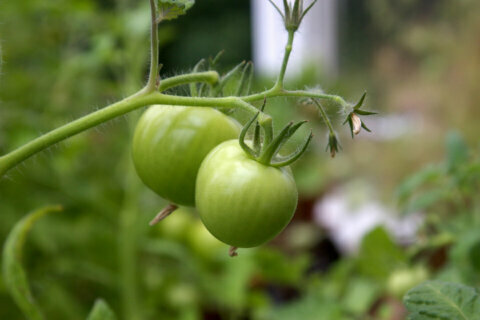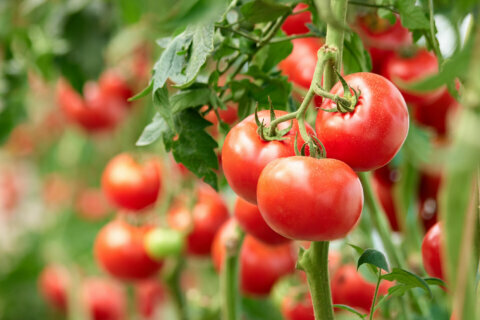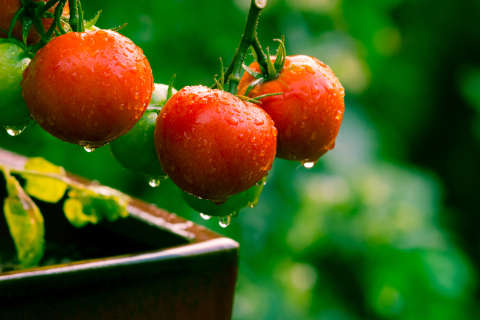Kat in Leesburg writes: “I failed to keep up with weeding a section of my vegetable garden. Crab grass and other weeds got 2 to 3 feet high and then went to seed. I ripped them out as best I could, but didn’t get all the roots.”
Sounds like you had a round of frantic but useless pulling, Katster. The best way to handle weeds is to soak the soil for hours — really saturate it — and then pull low and slow; get down to where the plant meets the soil and pull slowly and gently. That’s how you get the roots out!
Angry yanking may seem emotionally satisfying but it doesn’t get the job done. And it tends to be the panicked tactic of choice for large areas that seem insurmountable. Better to slow down and spread the job out over a week or so. An hour a day of doing it right gets rid of the weeds — without you needing a corner man.
Plastic only works when summer is hot
Kat in Leesburg is “looking for advice on how to get an area of my garden back under
control without using chemicals” after letting crab grass and other weeds grow high and go to seed.
“I can see a lot of seed scattered on the surface,” she writes. “Would covering the area with black plastic until next May kill everything?”
No, Kat. Only clear plastic stretched tight over a perfectly cleared and leveled garden for an entire summer can kill weed seeds. (It’s called “soil solarization,” and this description of the proper technique is not my opinion; it’s the only way that diligent researchers got it to work.)
Your best bet now is to get a flame weeder — a hand-held, propane-powered garden torch at the end of a long shepherd’s hooklike wand — and slowly toast a section of the soil at a time, preferably when that soil is dry. It’s much less work, you get to stay upright and any little “pops” you hear will be an emotionally satisfying sign that you’re doing it right.
Weeds just love flat earth gardens
Kat says her vegetable garden measures 15 feet by 35 feet.
Because of the way you describe the dimensions, Kat, we have to assume that it’s a flat earth garden; a design — or lack of design — that guarantees maximum weed woes. You’ll get a lot more eatin’ with a lot less weedin’ from a series of raised beds. Four by eight is the ideal size with 2-foot wide walking lanes in between. Because the growing area is a foot above the soil line, grassy weeds like the clover and crab grass you specifically name can’t migrate in from the outside. And you can just mow the lanes to keep their weeds under control — no pulling. And the cool fall air is perfect for raised bed building! (Hint, hint… )
If you haven’t yet pulled, burn baby burn!
Kat in Leesburg admits that she “failed to keep up with weeding and now has weed seeds all over the place.” A lot of our listeners are probably in the same place, Kat. All the rain we received this summer was great for weed growth, and (as you learned) hasty pulling just spreads the seeds that have matured on those weeds.
The best way to prevent the future germination of those seeds is to get a flame weeder and use it to incinerate the tops of the plants. Then, run it up and down the sides of the plants; wherever you see seed pods. The torch will toast those seeds and make it safe to then pull out the plants without planting next year’s crop of seeds. Added bonus: The seeds look like Munchkin fireworks when they pop!
Weed control 101: Get stale
If you, like Kat, forgot to keep up with weeding this season, here’s how to correct that:
First, use a flame weeder to toast those weed seeds on the surface.
Then, let those roots re-sprout. When the roots are tall enough, soak the soil thoroughly and pull gently at their base. (Compost those pulled roots; they’re full of nutrients.) Next season, delay planting until any missed weeds have been growing for two weeks. Then carefully and methodically slice them off at the soil line with a hoe with a super sharp blade, like a diamond hoe.
Whatever you do, don’t till the soil; tilling is like deliberately planting weed seeds!
Mike McGrath was Editor-in-Chief of ORGANIC GARDENING magazine from 1990 through 1997. He has been the host of the nationally syndicated Public Radio show “You Bet Your Garden” since 1998 and Garden Editor for WTOP since 1999. Send him your garden or pest control questions at MikeMcG@PTD.net.







